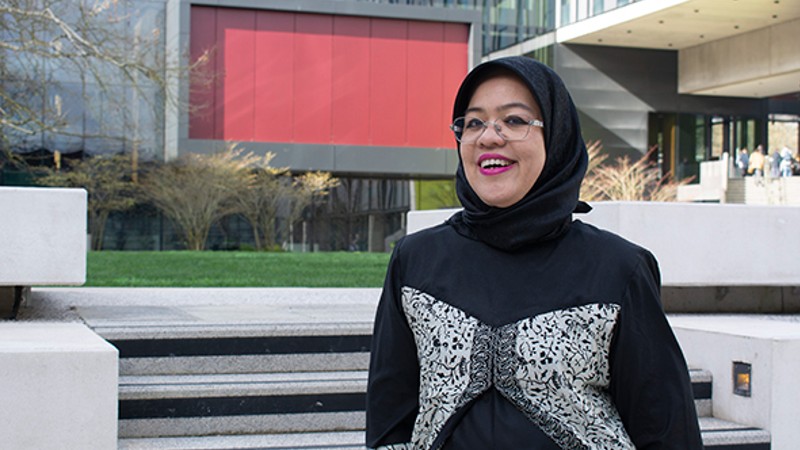Oxford Brookes Business School research student profiles
Thesis title: Navigating Backlash: Micro-Strategies of Black Women Diversity, Equity, and Inclusion Practitioners in U.S. Small and Medium-sized Enterprises
Started: January 2024
Director of Studies: Dr Charoula Tzanakou
How did you hear about Oxford Brookes University?
In 2020, I was attracted to Oxford Brookes University because of their excellent Human Resource Management program. I did my MSc in Human Resource Management here.
What attracted you to Oxford Brookes University to conduct your research?
I was encouraged to apply for the 2024 Center of Diversity Policy Research and Practice’s studentship opportunity. My field is Diversity and Inclusion studies, so this was a great fit and a wonderful opportunity to work with one of my previous lecturers.
What were you doing before?
After my MSc, I went into industry, working as an HR Coordinator then transitioned to the Diversity and Inclusion field. Prior to my PhD, I was working as a Client Success Manager for a Diversity and Inclusion data technology company.
How easy did you find it to settle into the research environment?
My supervisors made me feel very well-supported and I quickly became integrated into the community, especially with the other January starters. Working from the PhD suite played a huge role in my integration.
Tell us about your research
This research examines the micro-strategies of Black women Diversity, Equity, and Inclusion (DEI) practitioners advancing DEI work from within Small and Medium-sized Enterprises (SMEs) in the United States, particularly in the context of recent backlash against DEI efforts. It focuses on their daily strategies of resistance and advocacy in their DEI roles within organizations.
Black women have played a significant role in social justice activism and navigating multiple layers of oppression in the U.S. Despite their central role, they are often overlooked in corporate DEI efforts. Black women, facing intersecting forms of marginalization, are likely to encounter unique challenges in their roles. Furthermore, in today's expanding DEI landscape, where significant investments underscore its profitability, there remains limited understanding of how DEI practitioners implement micro-strategies in their daily work. Examining this within the U.S. context becomes imperative amid escalating DEI backlash, offering insights into navigating future challenges. This study aims to uncover the nuanced experiences of Black women DEI practitioners, shedding light on their invaluable daily contributions and strategies for navigating obstacles to achieve genuine, lasting DEI advancement.
This study will be informed theoretically by Black Feminism, Critical Race Theory, and critical diversity studies. It will draw upon the works of Audre Lorde, Abrica and Oliver Andrews, and Gray et al. to demonstrate how the DEI profession is driven by white interests and agendas. Additionally, literature from critical diversity management and organizational studies will be employed to explore how micro-strategies are shaped and influence diversity work within organizational settings.
Empirically, an innovative multi-media digital diary study will be utilized, combined with interviews, to delve into the everyday strategies of ~25 Black women DEI practitioners. This methodology will allow the participants’ worlds to be virtually experienced as their everyday contributions and strategies are analyzed through multi-media diary entries.
By centering the experiences and perspectives of Black women DEI practitioners, the study will offer unique insights and strategies that can influence and inform DEI practice and advancement, particularly in the context of DEI backlash. This research is aimed at DEI practitioners and changemakers, organizational leaders committed to DEI, and diversity scholars interested in advancing diversity, equity, and inclusion knowledge and efforts.
The study offers significant contributions to the field of DEI research through several novel avenues. Firstly, it delves into the nature of DEI work, providing a rare glimpse into the daily contributions and strategies of Black women DEI practitioners—a group often overlooked in the literature. Secondly, by employing innovative multi-media digital diary methods, the study pioneers new ground in qualitative research methodologies, particularly in the realm of DEI studies. Thirdly, it integrates frameworks from Black feminism and Critical Race Theory with critical diversity management and organizational studies, a combination seldom explored in existing literature. This study's originality will provide a fresh perspective that is not commonly found in DEI scholarship.
What do you enjoy about being a research student?
I most enjoy the autonomy to focus on my research and other academic engagements. I have been able to attend and present at conferences and am working on two part-time projects to gain more experience in both academia and industry.
Sometimes making my own schedule can be challenging but I have learned to start working in Pomodoro cycles to maintain my momentum. Going into the office and having dedicated working hours helps to keep me focused and on track. Also, setting clear deadlines and expectations with my supervisory team helps to hold me accountable.
What do you think about the research training offered at Oxford Brookes?
The training programs were excellent in ensuring I was aware of what was expected of me. The Qualitative research methods training/workshops also helped me to expand my knowledge on different ways to collect research and how to be innovative in my study.
What are your future plans?
In the future, I would love to become a lecturer after completing my PhD. The goal would be to teach at a top university one day. I would also like to continue researching alongside my teaching and working on Knowledge Exchange projects in order to make a tangible impact within the Diversity and Inclusion industry. I hope to really build my networks and expertise in teaching, research, and public speaking so that I can become a thought leader in Diversity, Equity, and Inclusion. I may also want to write and publish books and educational materials for Diversity and Inclusion practitioners to utilise.
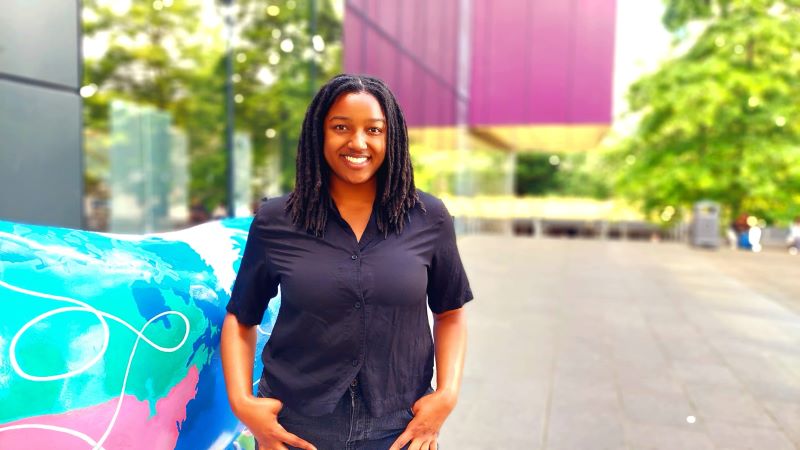
Thesis title: Survival learnings of a centenary, family-run, luxury fashion company facing disruption: an historical perspective.
Started: September 2023
Director of Studies: Dr Ioanna Iordanou
Second Supervisor: Dr Simon Adderley
Third Supervisor: Dr Ian Holgate
What attracted you to Oxford Brookes University to conduct your research?
Opportunities for cross-faculty supervision between the humanities and business are rare. Oxford Brookes offered me a unique avenue for my doctoral work through the support of its leading scholars: Dr Ioanna Iordanou and Dr Simon Adderley from OBBS and Dr Ian Holgate from the School of Education, Humanities and Languages.
What were you doing before?
Before joining the programme, I completed a Master’s in Research from the Royal College of Art, London. Now, my work at the university sits at the confluence of fashion and organisation studies at Oxford Brookes Business School (OBBS). In addition to my scholarship, I am the managing director of development and a shareholder of a multi-business unit holding company based in London and New York that specializes in investments in the arts, culture, media, and technology industries.
Earlier last year, I presented a lecture at the Work In Progress (WIP) exhibition at London’s Central St Martin's Masters Architecture Programme titled Survival Learnings in a Creative Organisation in March of 2023. In the spring of 2022, I planned and co-produced the Education and Creative Technologies Testbed Symposia launch of the Human-Machine Collaboration Conference, organised by the University of Oxford’s Mathematical, Physical and Life Sciences Division, supported by Amazon Web Services (AWS). Similarly, I produced the British Council’s GREAT webcast lecture, Local Knowledge, Global Networks: Digital Futures for Higher Education, presented by Dr Howard Hotson, Professor of Early Modern Intellectual History, University of Oxford. I continue collaborating with researchers at the University of Oxford's CABINET (the University of Oxford Centre for Teaching and Learning focused on innovative pedagogical platforms) and the Oxford Internet Institute (OII) on the role of advanced media technologies in data visualisation.
Tell us about your research
My PhD thesis explores the articulation, enabling, and enacting of the strategy deployed by a centenary, family-run, luxury fashion company—as it ensures its continuance when faced with disruption. In my professional context, creative disciplines enrich company strategy; nonetheless, academic literature does not adequately acknowledge the unique contribution of creative disciplines in formulating strategy. In a creative context such as fashion, family-run companies may offer unique insights into articulating, enabling, and enacting strategy in the face of disruption.
Tell us something about your academic work as a research student
In alignment with my interests in creativity and business, I organized and hosted the roundtable session with Dr Yuniya Kawamura, Professor of Sociology at the Fashion Institute of Technology, New York and filmmaker Frédéric Tcheng, held at Oxford Brookes’ 4th International Creative Industries Festival this April 2024.
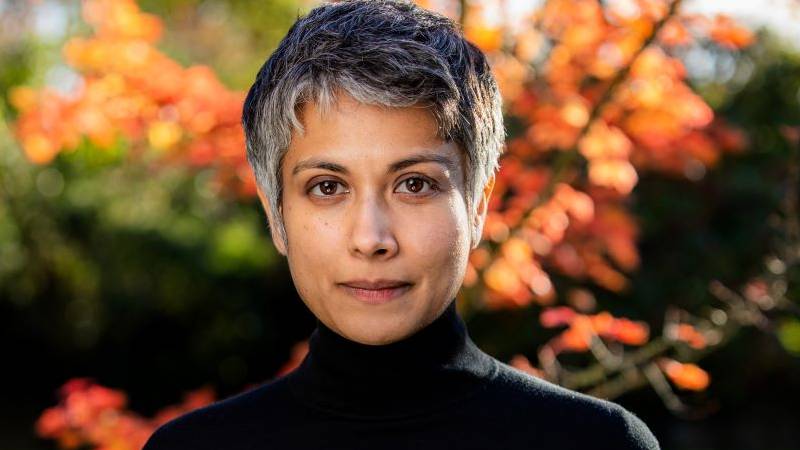
Thesis title: How do non-academic women who identify as black and ethnic minorities in HEIs in the UK experience challenges in their career progression aspirations and how can this be understood using an intersectionality lens?
Started: January 2018, awarded June 2024
Director of Studies: Dr Sylwia Ciuk
Where are you from?
Zimbabwe
How did you hear about Oxford Brookes University?
I first joined Oxford Brookes as an MSc student.
What attracted you to Oxford Brookes University to conduct your research?
I did my Masters at Oxford Brookes, so it seemed reasonable to do my PhD here.
What were you doing before?
Before starting my PhD, I was working for the University of Oxford as a Senior HR Officer.
How easy did you find it to settle into the research environment?
My supervisors, the disability team and my fellow students were all so supportive when I was not feeling well.
Tell us about your research.
Gender has always been used as a common denominator in which women can find some common ground in order to counter their inequalities in leadership. This research, however, aims to explore and highlight the challenges that women who identify as BME face in their quest to progress and attain leadership roles in higher education institutions (HEIs). I will discuss the encounters (for example, stereotyping and prejudice) that these women face and specifically address the dimensions of gender, race, class and their impact on leadership. Crenshaw’s (1989) concept of intersectionality will be used to understand the way in which gender, race and class mediate and shape the experiences of these women in the workplace. The road to leadership demands an understanding of how multiple identities position women differently in HEIs. The research seeks to redress the reliance on one identity and argue that women have multiple identities and will be affected differently by these multiple identities.
In 1989, Crenshaw introduced the term to avoid the pitfalls inherent to identity politics. She argues, intersectionality ‘denote[s] the various way[s] in which race and gender interact to shape the multiple dimensions of black women’s employment experiences’ (Crenshaw 1989, 139). Thus, Crenshaw challenges individuals and institutions who essentialise identities. It is clear that intersectionality has given us something to think about despite the various debates and critiques that surround the framework
This research will be carried out in Higher Education Institutions and qualitative research methods will be used to explore the phenomenon under study by interviewing women who identify as black and ethnic minorities. I intend to explore the perceptions and the views of these women when it comes to their leadership opportunities in these institutions. Having worked in one myself, I would have to reflect and note down any biases I might have, but the semi-structured interviews with participants are meant to explore deeply on this topic. I will conclude by highlighting the findings and limitations, and what can be done to bring about social justice in underrepresented groups.
What are your future plans?
I hope to pursue a career in academia.
Thesis title: Mining led Industrialisation and gender-based violence within indigenous communities in Kalahandi District of Odisha, India.
Started: October 2016
Director of Studies: Dr Sarah Le Roux
Where are you from?
India
How did you hear about Oxford Brookes University?
I heard about Oxford Brookes University from my friend and was impressed with its academic infrastructure and student support.
What attracted you to Oxford Brookes University to conduct your research?
Research funding and the research expertise of my supervisors attracted me to Oxford Brookes University.
What were you doing before?
I worked for 18 years as a development professional in various research-led consulting firms and non-governmental organisations. I worked as a consultant to various government, non-government organisations and corporate bodies in many states of India, Nepal and Bangladesh. My areas of consultancy include; agribusiness promotion, Non-Timber Forest Products (NTFP) based enterprise development, women empowerment and livelihood promotion, education, rural marketing and vocational skills development. During this period, I published book chapters and articles in different international journals.
How easy did you find it to settle into the research environment?
Since I had done my masters in the UK, I was quite aware of the research environment, so it was not that difficult to settle down. My supervisors and research group are a great source of support. Various research activities, seminars, training programmes and events organised by the Business School creates an atmosphere of academic culture which is very helpful. Regular supervision from my supervisors is the biggest asset of my PhD studentship. Library resources and other academic infrastructure help me immensely in my research work.
Tell us about your research.
The title of my research is “Mining led Industrialisation and gender-based violence within indigenous communities of Odisha, India”. The overall aim of this research is to examine and understand the inter-relationship between mining led industrialisation and growth of violence among indigenous communities (particularly women) in India, through an eco-socialist and feminist theoretical framework, and empirical evidence.
The path to development of Indian economy is perceived through large scale industrialisation. This approach, designed to eradicate poverty and debt, paradoxically targeted elite and urban sections of India with residual impact on rural and tribal population. The study focuses on the issues and transitions in gender relationships and gender roles of the tribal communities, particularly women, who are more vulnerable in the process of mining led industrialisation. The mining projects in the name of development are not only a threat to environment and livelihoods but also a predicament to the status of the tribal women.
This research focuses on how the current industrialisation process not only has been violating all environmental and other regulations of the government in the form of deforestation, mining, displacement by its own institutional set ups, but it has also been contributing to strengthening patriarchal relations among the tribal communities; a phenomenon which is less noticed. This research will analyse the encounters and social structural changes through mining induced displacement where the position of women in tribal societies is threatened. Largely, due to the fact that employment in mining industry is predominantly male, tribal women are not only rendered unemployed, but they are also getting marginalised in the communities, losing access to livelihoods due to changes in the land use patterns, displacement and deforestation. This research intends to explore, understand and analyse the transformations within indigenous societies caused by mining led industrialisation and the growth of a patriarchal culture of violence.
The research is based on qualitative multi-method case study of the Sundargarh district of Odisha, India. Sundargarh is one of the districts with high concentration of tribal population and has attracted several mining industries like coal, iron ore, bauxite and manganese. Multi-method case study research, rooted in critical realist paradigm, has been adopted for this research.
What do you enjoy about being a research student?
The interdisciplinary research environment at Oxford Brookes University helps me as a researcher. I have been able to learn about different research skills from my fellow researchers. I have been able to make friends from various countries, which helps cross-cultural learning and keeps me excited.
British weather is the biggest challenge for me. Initially it did affect me a lot, but with time, I have been able to cope with it.
What do you think about the research training offered at Oxford Brookes?
The research training is beneficial for me since I am returning to academic research after a long gap. It brushes up on the skills required for academic research. It is well designed for a researcher and keeps a person updated on latest research methods and analysis techniques.
What are your future plans?
I wish to complete my PhD within stipulated time. I will continue to publish REFable articles in the ABS list of journals and teach in different areas of development economics by keeping social goals in mind.
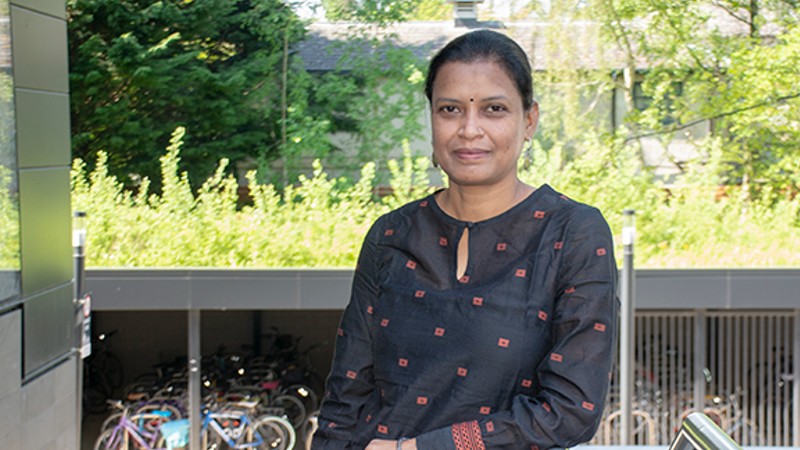
Thesis title: Supervision for team coaches: The issues, challenges and experiences and what those may indicate about the capabilities needed for supervisors to be fit for this role
Started: January 2023
Director of Studies: Dr Peter Jackson
Where are you from?
Western Canada. I was living in Calgary (near the Rocky mountains) before coming here.
How did you hear about Oxford Brookes University?
I follow my Supervisor (Tatiana Bachkirova) on LinkedIn. The year before a milestone birthday I noticed a post about studentships, and thought “why not”. I had a week to apply and did not think I would be able to put together a quality application in that time. I was pleasantly surprised with how much reading and thinking I had already done in order to put together a proposal that ultimately ended up in my being offered the studentship.
What attracted you to Oxford Brookes University to conduct your research?
My Director of Studies and Supervisor and their work was what initially attracted me. I had met both separately in Canada at different conferences. In many ways, the UK is much further ahead with coaching and coaching supervision research than North America. When I asked others familiar with Brookes they all had good things to say about campus and Oxford in general. I have lived and worked overseas for a good portion of my life, and following covid, I was excited to get out and explore the world again while also pursuing my dream of earning my PhD and learning how to conduct rigorous research.
What were you doing before?
I was working as an Organizational Development Consultant and Executive and Team Coaching practitioner. 80% of my work was as an internal consultant, and the other 20% was independent contractor work.
How easy did you find it to settle into the research environment?
The time of year I came was a bit challenging (Jan 2023), as I was the only new student, so I felt a little bit isolated and didn’t have a lot of people around to ask for help or to show me the ropes but I notice this fall there is a larger group of new researchers, which adds to the buzz and community feel. I think there is a lot of support and excellent resources available across OBBS and campus. I keep discovering new opportunities and things, so that’s great.
Tell us about your research
My inquiry will explore the experience of team coaching supervision from the perspective of both supervisors and coaches in order to develop an understanding of the capabilities required of supervisors to provide an effective service to their team coach clients.
I plan to conduct and analyse semi-structured interviews on the individual reflexive experiences of coaches and supervisors, as well as the meanings constructed by observers based on their reflections on the recordings.
The study seeks to address the following questions:
- What happens in supervision sessions with team coaches? i.e. What do coaches bring as issues to reflect on, what else is explored in these sessions and what difficulties do supervisors and coaches experience in their work together?
- What do the experiences indicate about the capabilities needed of supervisors to provide a quality supervision experience?
Conducting this research is essential to expanding the existing literature on coaching supervision. It will contribute to developing the coaching and supervision knowledge base, and my inquiry has the added benefit of examining the novel and emerging context of team coaching. I have completed registration and ethical approval and am currently recruiting participants.
What do you enjoy about being a research student?
Because my area is still developing there are many research gaps. It is difficult to find peer reviewed literature, but looking at adjacent fields and speaking with reference librarian (Isabel Virgo) has been very helpful. It feels great to be able to potentially contribute to the development of the profession with solid empirical research.
What do you think about the research training offered at Oxford Brookes?
I would like to recognize the many things OBBS and Brookes do to support us. Karen Handley and Rosa Codina ran two very invaluable series on Qualitative Methods, Sylwia Ciuk and Judi Gannon also arrange regular 20/20 and PhD Suite Talks.
Maria Brown, Susan Brooks and the Research Degrees Team also do a great job of anticipating and responding to student’s academic and personal development needs and offer many valuable support.
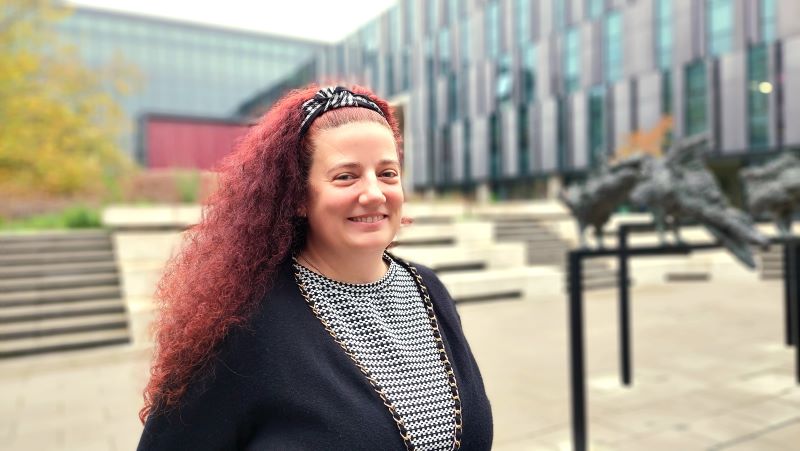
Thesis title: ‘What role does coaching and mentoring play for charity CEOs?’
Started: October 2021, awarded September 2024.
Director of Studies: Dr Judie Gannon
Second Supervisor: Dr Joanna Molyn
Where are you from?
Thames Ditton, UK.
Tell us about your experience
Ever since finishing my MSc in Coaching & Behavioural Change at Henley Business School in 2016, the idea of doing a doctorate at Oxford Brookes has been a tempting one. The course seems unique in providing the opportunity to deepen one’s academic understanding of coaching and mentoring, whilst also maintaining a professional practice at the same time.
I have been working independently for several years as an executive coach-mentor for leaders in charities, start-ups and larger corporates. The specific trigger for me engaging in the doctorate programme at this stage was the Covid crisis. Before the pandemic hit, charities had already been facing a wide range of strategic difficulties. The impact of austerity, funding pressures, declining public trust, digital disruption and Brexit were just a few of the issues they were typically dealing with. But Covid transformed the situation to create a perfect storm in which demands for service provision skyrocketed, funding collapsed and the usual ways of working became impractical. When you add on top the further challenges that have arisen more recently relating to diversity and inclusion, COP26 and the Ukraine war, we have certainly been living through exceptional times!
In the eye of this storm have been the CEOs of charities who have had to handle these extreme circumstances, often with little personal support. For this reason, I am intrigued to learn more about the role that coaching and mentoring can play in supporting people in this role. Research evidence suggests that coaching and mentoring is not widely used by charity leaders, partly because the disciplines are not well understood and partly because many CEOs feel a bit self-indulgent spending their time, and potentially also the charity’s money, on their own personal development. However, those that do benefit from this kind of help rate it as their most valuable form of personal and professional development.
My hope is that my research project will help to strengthen the knowledge base about the characteristics of coaching and mentoring for CEOs. In so doing, it will help to increase the awareness and understanding charity CEOs have of the potential support they have available to them. It will also help to better inform coaches and mentors about the key issues, needs and mindsets of their potential clients in this sector. Both groups could learn to build more productive coaching relationships by better understanding the ways of working together that deliver greatest value and impact.
Having been involved in the programme for a few months now, I have thoroughly enjoyed being a student again. I’m conscious that I’m probably one of the oldest students on campus – in fact, I’m probably older than most of the staff members too! But you’re never too old to learn something new and I’ve found the support and challenge from everyone involved in the Oxford Brookes community has been very inspiring.
The experience hasn’t always been easy. Getting my head around some of the philosophical aspects of the nature of knowledge has been a stretch, as has my return to the realm of statistical analysis for the first time since my A-levels! But I’m loving the intellectual challenges and I’ve already learned a huge amount about both charity leadership and the rigours of doctoral-level study.

Thesis title: The potential of product placement in mobile games as an advertising strategy: A study evaluating the effectiveness through recall and recognition for Indian female consumers.
Started: April 2016
Director of Studies: Professor Sarah Quinton
Where are you from?
India
How did you hear about Oxford Brookes University?
I found out about Oxford Brookes University through a Google search when I was looking to apply for a research degree programme at a university which offered Digital Marketing.
What attracted you to Oxford Brookes University to conduct your research?
After my masters’ degree, I was looking for universities to apply to for a doctoral degree which was credible and highly reputed. I conducted sufficient research and shortlisted universities which are highly ranked across a span of different research projects especially within the Marketing subject area. This is when I came across Oxford Brookes University. I was clear that I wanted to be a part of a university which provided a high-quality student experience and would prepare me for a career in academia. I was impressed with the research student profiles across the University and at the Faculty level which was very diverse. I found various interesting active research projects about digital marketing strategies. Most importantly, my potential supervisors’ (who are also my current supervisors, Dr Sarah Quinton and Prof Janine Dermody) research profiles; their research interests and experience attracted me to join Oxford Brookes University. Additionally, Oxford is a beautiful place to live with a strong student community presence around the city.
What were you doing before?
Before commencing my PhD journey at Oxford Brookes University, I completed a Masters’ by research (MRes) at the University of Exeter.
Prior to starting my journey in the United Kingdom, I worked as a Lecturer at Reva First Grade College and Brindavan College in India, and as an Activation Officer at Nestle India Ltd.
How easy did you find it to settle into the research environment?
It was very easy for me to settle into the research environment as I had just completed my masters’ degree and produced a dissertation on consumers’ stance towards mobile games as a communication medium, a case study of Indian gamers. The PhD programme at the Business School is well structured (registration, ethics approval, transfer, and the final submission) and communicated very clearly in the induction session, which is helping me to focus and plan my work to achieve the set milestones. Both my supervisors are very supportive in various stages of the PhD programme and for the deadlines that I need to adhere to. At the beginning, the library training was particularly useful for me to know from where and how to get access to the resources available for my research. The University also offers support by providing various research training and networking events.
Tell us about your research.
The purpose of my research is to investigate the effectiveness of product placement through recall and recognition in mobile games as experienced by Indian female consumers. In the last few years, with progress in technology, the ways of advertising are changing as advertisers look for new avenues of reaching the target consumers. Product placement is a creative and productive tool in the promotion mix which combines the advertisement with the entertainment, blurring the advertised content. Creating awareness using product placement strategy has been the main goal of advertisers. Although movies and television programmes have been popular choices for product placement because of its wide reach, over the past few years, it has expanded to other forms of media like video games, computer games and games played on social networking platforms.
A mobile phone is the easiest form of entertainment whilst on the move. Mobile games are an interactive and engaging platform, it provides a way for gamers to interact with the products placed in the game than just being mere passive viewers of advertisements. Many video games are now moving to the mobile platform to increase their audience reach. Digital games are traditionally associated with men. But with the increased use of mobile devices, games have also attracted a lot of women consumers. Mehta (2016) highlights that Indian women are outplaying men in mobile games. Men and women approach and interpret advertisements with different motives and perspectives. The growing number of women playing mobile games, the increase in disposable family income, and their response to media can have a positive impact for gaming companies in India, attracting advertisers to reach these women gamers. Thus, the underpinning idea of this study is to conduct gender-specific research examining the effectiveness of product placement through recall and recognition in an interactive and engaging platform like mobile games. Furthermore, this research will be conducted in a naturalistic environment to explore the opportunities and limitations with product-placement strategy in a hand-held environment.
My project will employ a mixed methods research approach, where the participants will be asked to play a game on their smartphones and answer a questionnaire after playing the game. Additionally, in order to understand the perspectives of the participants about the game and their experiences of the product placement concept in detail, semi-structured interviews will be conducted. This research will develop a product placement framework.
What do you enjoy about being a research student?
I enjoy being a research student primarily because it gives me an opportunity to explore my research topic in detail with a new perspective; to read different theories and other researchers’ insights about the topic and at the same time see the practical implementation. Although it is a journey of my choice, there are times when I am muddled and look for guidance. My supervisors have always been supportive and guiding me at all stages. I am always supercharged after meetings with my supervisors who constantly encourage me to work hard and produce quality work within the agreed deadlines.
The challenging aspect so far in my PhD journey is to maintain consistency with my work. ‘Being efficient and systematic’ has been my mantra until now; to constantly discipline myself and plan my day-to-day activities. I strongly believe that it is important to break long-term goals into working short-term goals and each time I accomplish a goal I list it and reward myself! I feel with these little rewards, along with the list of accomplishments, motivates me to work hard in the long run.
What do you think about the research training offered at Oxford Brookes?
The training events at Oxford Brookes University are plentiful and communicated in advance. The Graduate College Training Programme including time management, tackling the writing stage, media training workshop and data management and storage have helped me to learn strategies for careful planning and execution, and has allowed me to be productive throughout my PhD journey. I find the career and personality development training to be very engaging and covers a span of training programmes from how to write a job application, how to get a job and the interview skills required for researchers in academia. Courses also focus on non-academic jobs; enhancing personal effectiveness as a researcher through the MBTI framework, for example, has been beneficial for me, as I am aware of the opportunities that I can look for and how to apply. Seminars from the Oxford Brookes Business School such as the 20-20 seminars every semester, International Research Conference and Biennial Doctoral Event provides an opportunity to interact with guest speakers and different PhD students and listen to a range of research methods, the data collection process, and the challenges. I have attended many seminars and training from the very beginning of my PhD journey and will continue to attend, this is helping me to enhance my skills set and learn new concepts which are valuable as an early career researcher.
What are your future plans?
After completing my PhD, I aspire to continue my career in academia as a priority. However, if I become aware of some interesting market research work in any company, I am open to that as well.
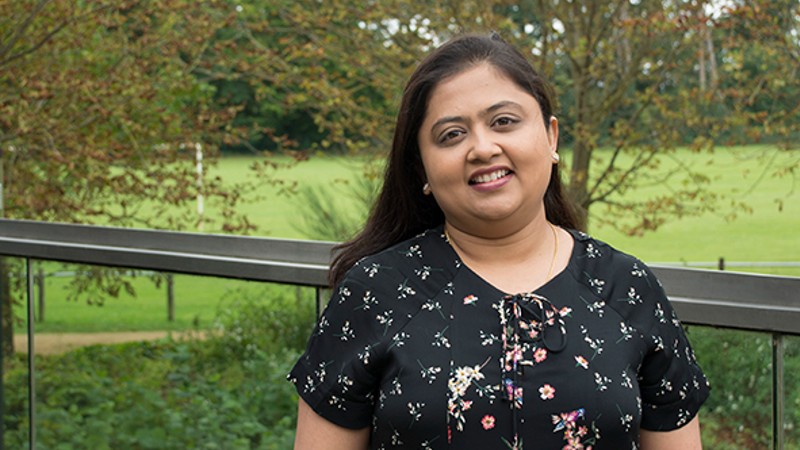
Thesis title: Virtual Tourism Initiatives in the Global South: Digital Tools for Heritage Conveyance and Community Empowerment.
Started: January 2024
Director of Studies: Rosa Codina
Where are you from?
Brazil
How did you hear about Oxford Brookes University?
My initial connection with the university was through a research project I was contributing to, where I had the opportunity to collaborate with scholars from Brookes. This experience exposed me to cutting-edge research, skilled professionals, and a supportive environment.
What attracted you to Oxford Brookes University to conduct your research?
The positive experience I had collaborating with its research group during a previous project drew my attention to Brookes, where I became familiar with its strong reputation in teaching, tourism, and sociology-related studies. Additionally, the fully funded Studentship awarded by the institution made Brookes an excellent choice for conducting my research.
What were you doing before?
Before starting my doctoral studies, I worked as Regional Education Project Manager for Brazil's largest non-profit organization. I led the design, supervision, and execution of initiatives focused on Scientific Communication, Anti-racism Education, and Digital Inclusion, particularly for socially vulnerable populations.
My responsibilities included strategic planning, training and supervising teams, organizing impactful educational events, and establishing partnerships with museums, universities, and third-sector organizations.
Tell us about your research
My doctoral research investigates how digitised tourism experiences by community-led tourism initiatives (CLTIs) impact place transformation, heritage preservation, and digital mobility within their territories.
Study keywords: Community-led tourism; Social technologies; Digital transition; Heritage sustainability; Decolonising Research; Participatory methods.
In grassroots initiatives, tourism can be a powerful tool to promote social change by amplifying the voices of socially minoritised groups, such as Indigenous, rural, and favela communities, through fostering diverse economic practices, strengthening local autonomy, and sustaining cultural heritage. Within the virtual domain, studies have shown that a digital presence in the travel industry can provide these groups with opportunities to generate additional income, attract face-to-face visitors, expand communication reach, garner political attention, and mobilise local agendas on marginalised identities, memories, and culture.
However, many CLTIs face challenges in achieving a sustainable digital transition due to limited technical and financial resources, often relying on external partnerships that may compromise the authenticity and autonomy of their initiatives. Despite the growing use of digital tools in this context, there remains a lack of understanding of how digitisation impacts social cohesion, economic autonomy, and heritage sustainability in socially vulnerable settings. Further research is needed to map community initiatives, identify risks, and examine capacity-building opportunities to prevent local socio-economic disruptions, in addition to better comprehending the benefits, challenges, and impacts of digitised tourism practices on marginalised social entrepreneurs.
Within this context, my research explores the actors, settings, and contexts of CLTIs adopting digital strategies, looking at approaches to enhance capacity-building, strengthen digital autonomy, and foster heritage sustainability.
Focusing on a case study in Brazil, the study employs a mainly qualitative methodological approach guided by an interpretivist theoretical perspective. The New Mobilities Paradigm is used as an analytical framework to investigate the movement of people, territories, and narratives. The study incorporates Decolonising Research methods and Global South epistemologies to locate the perspectives of local actors at the centre of the analysis of complex social phenomena. Therefore, the research employs a community-focused and participatory approach to assess the benefits, challenges, and risks encountered by communities undergoing digital transformation.
What do you think about the research training offered at Oxford Brookes?
The research training is comprehensive, especially the Qualitative Research Methods sessions, which offer a thought-provoking and insightful environment that encourages active debate and participation. The open, diverse, and inclusive atmosphere makes it easy to share and discuss ideas, helping researchers develop and refine their work.
What do you enjoy about being a research student?
The autonomy and the space for debate and critical thinking that the academic environment provides. Most importantly, I value the opportunity to generate positive social impact and amplify minoritised narratives through my research. Connecting with other scholars is also a highlight, as it allows me to share ideas and learn from diverse perspectives.
To overcome research-related challenges, I focus on staying organized, setting clear goals, and building a supportive social and academic network.
What are your future plans?
My future plans encompass a blend of teaching, research, and project management, with a strong focus on collaborating with social entrepreneurs and change makers. I aspire to work in fields that intersect heritage, sustainability, digital entrepreneurship, and community capacity building. I aim to leverage these skills through roles at research centres, museums, third-sector organisations, and governmental bodies, driving initiatives that are both socially and environmentally impactful.
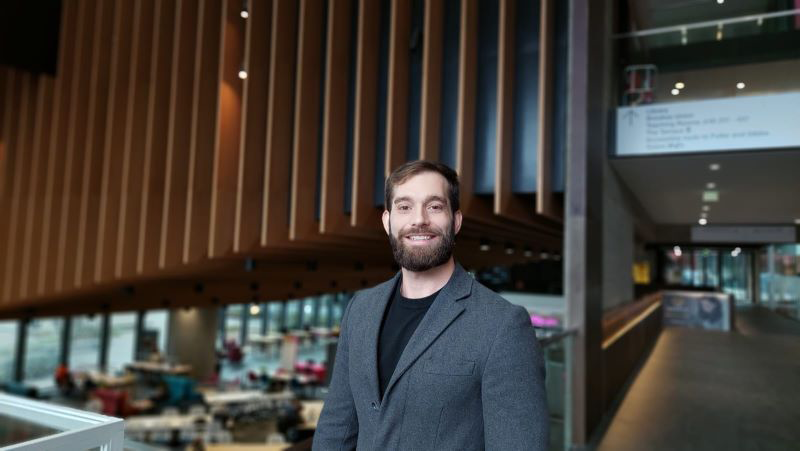
Thesis title: A comprehensive examination of pro-sustainable behaviour and its impact on tourist well-being and word-of-mouth intention.
Started: July 2023
Director of Studies: Professor Levent Altinay
Where are you from?
Uzbekistan
How did you hear about Oxford Brookes University?
I was following my Director of Studies Levent Altinay before becoming a student. I have known the good reputation of this University in the field Tourism and Hospitality since 2016 when I started to look for a place to study.
What attracted you to Oxford Brookes University to conduct your research?
I was attracted to Oxford Brookes University for its renowned Research Group and the expertise of specific researchers in my field. And Oxford City was a reason too.
What were you doing before?
Before coming here, I worked at Silk Road University in Samarkand. I taught tourism subjects and helped to collaborate with different universities at the International Relations Department.
How easy did you find it to settle into the research environment? What do you think about the support and resources available to research students?
When I hear the word “support”, two names that directly come to my mind are Judie and Sylwia, who are directing OBBS. I had a difficult time when I arrived but with their help and support, I managed the challenges. I have never had any problem with resources, which is fantastic.
Tell us about your research
Tourism, while economically vital, often has significant negative impacts on the environment, leading to issues like habitat destruction, pollution, and overconsumption of natural resources. In recent years, the growing concern over these environmental consequences has led to a focus on promoting pro-sustainable behaviour (PSB) among tourists.
This study aims to explore the factors that motivate tourists to adopt sustainable behaviours and examine the broader effects of these behaviours on their well-being and their likelihood to recommend destinations to others. Although much has been done to understand PSB in tourism, less attention has been given to the emotional and moral drivers that underpin these behaviours. Emotional factors, like a sense of responsibility toward the environment or moral obligation, have been explored in conservation psychology, but they remain under-researched in the context of tourism.
Moreover, while the benefits of sustainable tourism for the environment have been studied, fewer researchers have examined how engaging in PSB affects the well-being of tourists themselves. Furthermore, the connection between PSB and word-of-mouth intention—the likelihood of tourists recommending a destination based on their experience is important direction as well. This study attempts to fill this gap by investigating the link between tourists’ sustainable behaviours and their sense of hedonic (pleasure-based) and eudaimonic (purpose-driven) well-being.
To investigate these relationships, data will be collected through on-site surveys at Blenheim Palace, a heritage site known for its efforts to promote sustainable tourism. The survey will measure key constructs, such as tourists' perceptions of personal values. These constructs are essential in understanding the motivations behind pro-sustainable actions. The survey will also assess tourists’ well-being, separating it into hedonic and eudaimonic dimensions, and their likelihood of recommending the destination. Hence, this research makes several important contributions to the field of tourism and sustainability. First, it bridges two key theoretical models—the Norm Activation Model (NAM), which explores how personal norms and moral responsibility drive pro-environmental behaviour, and the PERMA model, which explains well-being in terms of both immediate emotional satisfaction and deeper meaning or purpose. By integrating these models, the study provides a more holistic understanding of how moral and emotional factors influence sustainable behaviour in tourism.
Second, the research offers new insights into the social outcomes of pro-sustainable behaviour, particularly the link between PSB and tourist well-being. This is especially significant as the well-being of individuals, alongside environmental preservation, is increasingly recognized as a critical aspect of sustainability. Finally, the study will explore how engaging in PSB can enhance a tourist’s experience, making them more likely to recommend destinations to others, which is crucial for promoting sustainable tourism. This research, practically, provides empirical data to help tourism managers and policymakers develop strategies by understanding the drivers and outcomes of PSB, destinations can better balance environmental protection with the well-being of visitors, contributing to the long-term sustainability of the tourism industry.
What do you enjoy about being a research student? Can you tell us about any challenges you face and strategies you use to overcome these?
As a research student, I enjoy the opportunity to explore new ideas, contribute to knowledge, and engage with a community of like-minded peers and mentors. The process of discovery and learning is exhilarating.
Challenges I face include, managing time effectively, dealing with research setbacks, and addressing stress. To overcome these, I prioritize tasks with a clear schedule and seek feedback regularly from advisors and peers.
What do you think about the research training offered at Oxford Brookes?
Oxford Brookes offers comprehensive research training that equips students with vital skills in research methodologies, critical thinking, and effective communication. It balances theoretical knowledge with practical application, laying a good foundation for successful research.
What are your future plans?
My plan includes pursuing advanced studies in my field, gaining research experience through training, and ultimately working in a role that allows me to apply my research skills and contribute to the tourism and hospitality sphere. I aim to stay engaged in continuous learning and professional development throughout my career.
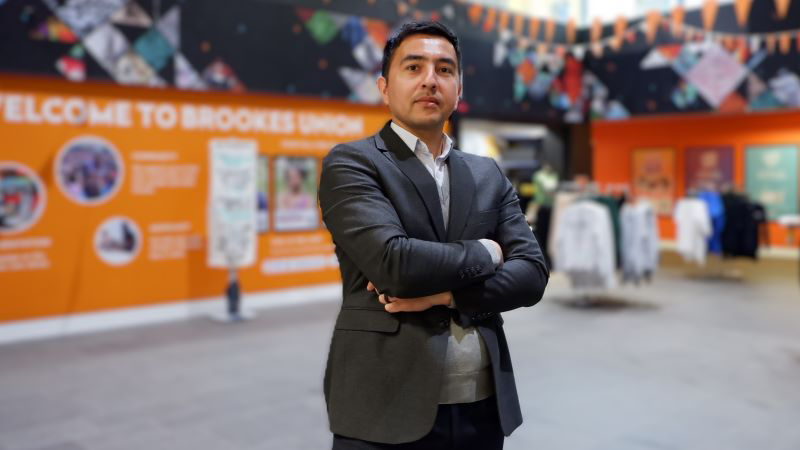
Thesis title: The influence of decentralisation of policy on the nexus of power in tourism in rural communities; a case study of the new Village Law (2014) in Indonesia.
Started: January 2017
Director of Studies: Professor Levent Altinay
Where are you from?
Indonesia
How did you hear about Oxford Brookes University?
I first heard about Oxford Brookes from the Oxford Brookes University website, before starting my master’s degree here. I completed a Master’s in Tourism and Hospitality Management at the Oxford Brookes Business School in 2015.
What were you doing before?
I have been running our family business in tourism and hospitality since 1996. Our business comprises two travel agencies, one small boutique hotel, and one transportation company. This has led me to work with the Indonesian government through several organisations that I represent such as ASITA (The Association of the Indonesian Tours and Travel Agencies) and IWAPI (The Association of Indonesian Business Women). As such, I have contributed to the planning and product development programmes, joined focus group discussions, and participated in international training and conferences worldwide. My experience in tourism has also provided many experiences of working with local community programmes, especially those that seek to improve the empowerment of women in tourism. I have also delivered a number of workshops for SMEs in tourism sectors.
How easy did you find it to settle into the research environment?
I have found I am surrounded by people that have excellent experience in research, as well as great facilities provided by the University. The University provides events related to my research and career development, and I am given numerous opportunities to talk about my research at conferences and seminars.
Tell us about your research.
My research aims to examine the 2014 Indonesian Village Law and its influence on the nexus of power in rural tourism destinations. The focus of the research will be on the planning and decision-making process at the village level. Decentralisation is defined as the transfer of authority and power, responsibility and resources, from central government to a lower level of government. Decentralisation has been suggested by a number of scholars as critical to securing sustainable tourism development. It is a democratic process, requiring bottom-up planning and decision making in less developed countries. Many authors have focused extensively on the dynamics of community based planning when seeking to implement sustainable tourism in communities. For the most part, however, they have not explored the connection and interaction between the local community and local government within a decentralised system. The level of authority provided to the community, the legitimacy of policy decision making within the community, and the resources to deliver tourism policies have also not been studied within decentralised tourism policy mechanisms.
The primary focus of this research is on the ‘mechanic’ of gaining participation from local community members. There are widely differing views about what constitutes effective community participation and many researchers have not explored the connection and interaction between the local community and local government within decentralised systems.
Indonesia started the process of policy decentralisation in 2001. The Indonesian Government chose not to follow the models implemented in other countries, where authority was transferred from a central government institution to regional levels of government. Instead, it chose to use decentralisation as a means to give greater authority, political and financial resources directly to regions and municipalities, thereby bypassing the provincial government structure. To this end, in 2014, the Indonesian Government enacted Law no 6/2014 (Village Law) on village governance and finance. This Law makes provision for the establishment of village governance committees and allocates funding to these committees from central government. As a result of the Law, all of the 74,754 villages in Indonesia have both the authority and resources to govern their own affairs and develop their area based on their individual preferences. Under the provisions of this Law, therefore, those villages which have tourism potential have the opportunity and means to develop tourism facilities using the resources and powers provided to them.
To ensure that increased decentralisation leads to increased democratisation, the Village Law recognises that village governance should be accountable to villagers by providing a framework for citizen participation in the planning and monitoring of local policies. Using a qualitative method, this research will define the factors that enhance citizen participation in the village, particularly in tourism development. The primary data has been gathered in two rural tourism destinations in Indonesia, which have been selected according to their tourism development trajectory stage. This research will analyse the advantages and disadvantages, the implications and the process of policy formulation that can emerge from the implementation of the policy for tourism rural community's engagement in Indonesia, as well as contributing to theory by delimiting the essential pre-requisites to support rural tourism communities in maximising the benefits from policy decentralisation.
What do you enjoy about being a research student?
I enjoy being a research student as it gives me an opportunity to explore, in detail, a research topic I am passionate about.
What do you think about the research training offered at Oxford Brookes?
Oxford Brookes University provides a wide range of research student training which has helped me to face many different challenges during my research programme.
What are your future plans?
After completing my PhD, I would like to work to help our communities develop their tourism potential, and expand my business in the tourism industry in Indonesia
